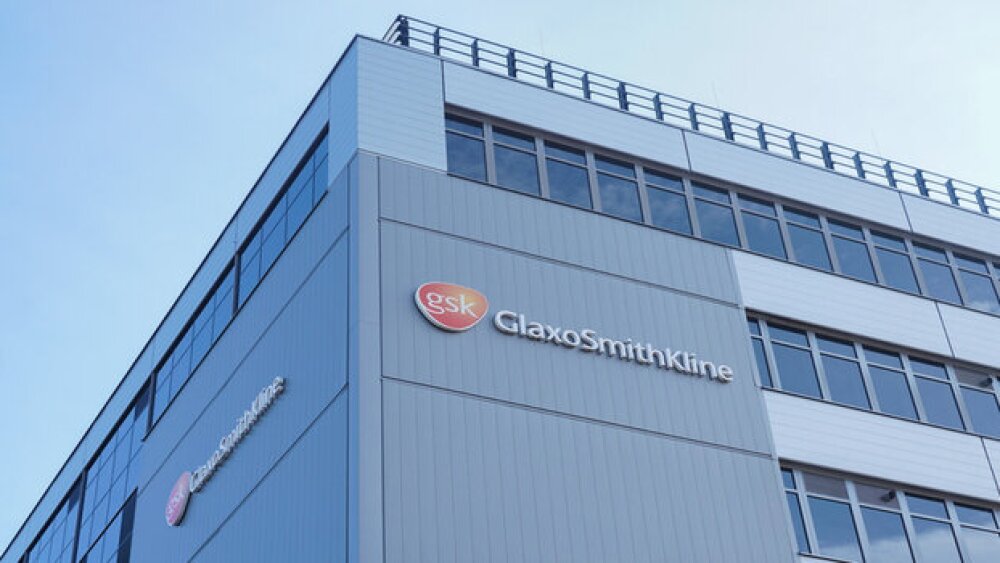The combination of Jemperli and chemotherapy followed by Zejula improved progression-free survival in a late-stage study of patients with advanced or recurrent endometrial cancer.
Pictured: GSK laboratories building in Dresden, Germany/iStock, 13threephotography
GSK on Monday posted topline data from the second part of the Phase III RUBY study, showing that a combination regimen with Jemperli (dostarlimab) and Zejula (niraparib) met its primary endpoint of progression-free survival in patients with advanced or recurrent endometrial cancer.
RUBY is a randomized and double-blinded trial enrolling nearly 800 patients with recurrent or primary advanced endometrial cancer. Monday’s readout comes from RUBY’s second part which first dosed Jemperli with standard-of-care chemotherapy, comprised of carboplatin and paclitaxel, followed by a maintenance therapy with Jemperli plus Zejula. Comparators first received placebo on top of standard chemotherapy, with a maintenance regimen of placebo alone.
The primary endpoint in RUBY’s second part was investigator-assessed progression-free survival (PFS), assessed in the overall patient population and in the subpopulation of patients with mismatch repair proficient/microsatellite stable (MMRp/MSS) tumors. Overall survival (OS) was a key secondary endpoint.
GSK did not provide specific data in Monday’s announcement but said that patients who were treated with the Jemperli-Zejula regimen saw a “statistically significant and clinically meaningful benefit” in PFS compared with those in the placebo arm.
The therapeutic effect was significant in both the overall population and in the MMRp/MSS subpopulation, according to the company.
Hesham Abdullah, senior vice president and global head of oncology R&D at GSK, said in a statement that these latest results from RUBY “reinforce our approach of building combination therapies with dostarlimab as the backbone in an effort to improve patient outcomes and options.”
OS data at the time of the interim analysis was immature and GSK will continue to follow RUBY for a complete analysis of the trial. The pharma will present the full data at an upcoming medical congress and submit them for publication, as well as discuss them with regulatory authorities.
Monday’s data drop follows a July 2023 approval for Jemperli in primary advanced or recurrent endometrial cancer patients who are dMMR or MSI-H. The approval covers Jemperli’s combination with carboplatin and paclitaxel, followed by single-agent Jemperli as maintenance. However, it does not authorize the combination of Jemperli and Zejula for this indication.
The regulatory win was backed by data from the first part of RUBY, which likewise demonstrated a significant PFS benefit both in the overall study population and in patients with dMMR/MSI-H disease.
AstraZeneca is also a player in the endometrial cancer space and in May 2023 announced that Imfinzi (durvalumab), given with or without Lynparza (olaparib), significantly improved PFS in the Phase III DUO-E study of newly diagnosed advanced or recurrent endometrial cancer
Tristan Manalac is an independent science writer based in Metro Manila, Philippines. He can be reached at tristan@tristanmanalac.com or tristan.manalac@biospace.com.
Correction (January 5): The story has been changed to state that PFS in RUBY was evaluated in patients with mismatch repair proficient/microsatellite stable tumors.






